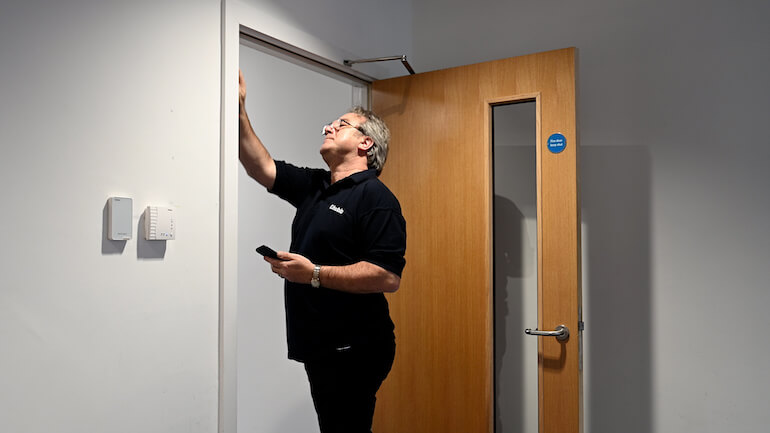Fire safety audits aren’t just a regulatory tick-box; they’re a vital component of safeguarding your workplace and ensuring peace of mind. By prioritising these audits, you’re not only protecting lives but also your business’s assets and reputation. In the UK, where regulations are stringent, staying compliant can mean the difference between disaster and security.
Understanding the ins and outs of fire safety audits can transform how you approach workplace safety. It empowers you to identify potential hazards and implement effective measures before they escalate. So, why leave anything to chance when you can take proactive steps today?
Importance Of Fire Safety Audits
Wondering why fire safety audits matter so much? Picture this: an unannounced spark in your business could disrupt not just the building but lives and dreams too. Fire safety audits act like a preventive tool, uncovering hidden risks before flames ever threaten. Ever thought about the real cost of ignoring these audits?
- Protection of Lives: Think of those bustling halls where every footstep brings energy. Now, consider the responsibility on your shoulders to ensure safe exits and clear alarms. Audits check these systems, guaranteeing they’re ready if ever needed.
- Asset Security: Your business holds treasures, from important documents to intricate machinery. Can you afford their loss? Through a thorough audit, you protect these valuables by identifying fire risks early. What’s more reassuring than knowing your resources are shielded?
- Regulatory Compliance: The UK’s regulations stand firm, with requirements that bind you, ensuring the safety of all. Miss an audit, and penalties loom large. Have you assessed your compliance lately?
- Insurance Benefits: Reflect on the peace insurance provides, yet there’s a catch: compliance with fire audits might tweak your premiums. Yes, a completed audit could mean financial savings. Isn’t that worth exploring?
- Business Continuity: Imagine a pause in operations due to a fire. An audit uncovers potential weak points, ensuring smooth sailing through stormy uncertainties. What would prolonged downtime costs entail for you?
So next time, think beyond mere compliance. Fire safety audits are key components that keep businesses thriving securely, maintaining a balance between duty and vigilance. Wouldn’t you want to stay one step ahead?
Key Components Of A Fire Safety Audit
Fire safety audits focus on several crucial areas. They delve into assessing risks, preparing emergency plans, inspecting equipment and evaluating training. Let’s break down these components to understand their significance.
Fire Risk Assessment
What lurks in the shadows of your workplace? A comprehensive fire risk assessment might unveil hidden dangers. This assessment must:
- Assess combustible materials and their locations.
- Identify potential ignition sources.
- Analyse fire spread possibilities across areas like offices or storage.
By doing so, it uncovers vulnerabilities hidden beneath the surface. Are these risks known to your team?
Emergency Response Plan Evaluation
How effective is your escape route? Emergency response plans should stretch beyond paper, they should – live in your actions:
- Review evacuation routes for accessibility, even in the dark.
- Inspect gathering points for safety.
- Ensure alert systems resonate through hustle and bustle.
These considerations ensure everyone knows their path, even amidst chaos. Can you hear the alarms now?
Fire Safety Equipment Inspection
Glimmering in a corner, does a fire extinguisher sit idle, or ready for action? Inspecting these stalwart tools ought to be a priority:
- Verify the condition of fire extinguishers and hoses.
- Complete a fire door inspection
- Check fire alarms ensure their cries echo loudly.
- Maintain emergency lighting for clarity in smoke-filled paths.
Equipment should be more sentinel than statue. Are they waiting to stand guard?
Training And Drills Assessment
Training isn’t just a class—it’s a lifeline. Assessing how well your team responds is crucial:
- Evaluate the frequency of fire drills within bustling workdays.
- Ensure drills reflect real scenarios leaving no room for mystery.
- Assess staff understanding of fire safety procedures.
Through repetition, drills turn response into instinct. Are your team’s instincts sharp?
Benefits Of Regular Fire Safety Audits
Think about the sense of security that comes with knowing your business, your haven of productivity, is safe from unpredictable flames. Regular fire safety audits offer numerous benefits, silently guarding your domain. During an audit, what is uncovered might surprise you yet set the stage for profound improvements. Let’s delve into the benefits that should not be taken lightly:
- Risk Reduction: Audits might reveal lurking hazards, those that blend into the everyday humdrum yet pose significant threats. Identifying them protects not just walls and machinery but life itself.
- Compliance Assurance: Adhering to safety regulations isn’t just a checkbox. Committing to regular audits ensures you’re always in line with the latest laws, averting hefty penalties that could arise from neglect.
- Insurance Benefits: Yes—insurers take notice when your business takes safety seriously. Often, lowered premiums become a reward for vigilance. Wouldn’t saving on expenses benefit your bottom line?
- Enhanced Emergency Preparedness: Training isn’t just for new hires; regular drills refine instinct—ensuring every team member acts swiftly. Ask yourself: is your staff ready to dance with destiny if flames arise?
- Asset Protection: Consider your business’s tangible treasures, each one critical. By focusing on safety, you guard these assets—preventing loss that insurance can never fully compensate for.
- Business Continuity: Fire interrupts life, yes? But with identified vulnerabilities addressed, you can maintain operations despite what others might call misfortune.
When was the last time your exits were checked for safety, or alarms tested for sound? How often is preparation overlooked in the bustle of business? Regular fire safety audits not only bolster your safety net but light the way for peace of mind. Engage with these reflections, ensuring you’re not just meeting standards but securing the foundation of your enterprise.
Challenges In Implementing Fire Safety Audits
Implementing fire safety audits brings its own set of hurdles. Yet, knowing them beforehand can equip you to tackle these challenges effectively, making fire safety more than just a checkbox exercise! What stands in the way of a seamless auditing process? Let’s delve into it:
- Resource allocation: Struggle with finding the right people? Audits require both time and expertise. Small businesses might lack personnel trained in fire safety. This challenge demands creativity, perhaps through outsourcing or upskilling current staff.
- Cost considerations: Paying for safety—is it really too costly or does it save much more down the line? Investment in audits often impacts budgets, especially for startups. Yet, cutting corners might yield disastrous consequences.
- Complex regulations: The UK’s intricate fire regulations—do they confuse rather than guide? Understanding legal requirements can be daunting. Compliance ensures safety but deciphering these laws may necessitate expert advice.
- Staff engagement: Are employees engaged or just going through motions? Staff participation is crucial yet sometimes lacks enthusiasm. Motivating your team needs more than mandatory drills; it requires creating a culture of safety.
- Facility limitations: Is your building ready for stringent fire safety measures? Older constructions may pose issues with implementing modern safety standards. Retrofitting solutions might be needed, calling for both creativity and budget shifts.
- Technological integration: How ready are you for the tech leap? Technology aids audits through software and tools yet integrating them requires both learning and adaptation; a hurdle not all are prepared to overcome.
Picture these challenges as stepping stones rather than barriers. Each one, though demanding, pushes you closer to an environment where safety thrives unnoticed but essential. What strategies can you devise to turn these challenges into opportunities? The stroke of ingenuity might just lie in how you choose to move past them—by questioning, adapting, and innovating at every turn.
Selecting The Right Fire Safety Auditor
Choosing a fire safety auditor is crucial for your business. But how do you know who’s right? With expertise and a vigilant eye, an auditor uncovers unseen risks lurking in shadows. Wondering what qualities to seek? Let’s take a look:
- Experience Matters: Look for auditors with years in the field. Can they figure out complex regulations like a captain steering a ship through stormy seas, ensuring compliance with UK laws?
- Credentials and Certifications: An authoritative presence often wears badges of honour. Do they hold credentials from reputable bodies? Consider certifications which may indicate mastery and reliability.
- Knowledge of Industry-Specific Issues: Each industry, whether manufacturing or hospitality, poses unique challenges. Might your auditor have insights tailored to your sector’s nuances? Like a tailor with fabric, they should understand the specifics.
- Attention to Detail: How sharp is their attention to detail? What about their ability to spot the tiniest of sparks before a blaze ignites? An eagle-eyed auditor catches what others miss.
- Reputation and Referrals: A good reputation speaks volumes. Seek referrals and reviews to hear tales of their past victories. Does their track record fill you with confidence?
- Communication Skills: Effective auditors communicate clearly, explaining technical terms in a language you grasp easily. Can they transform jargon into a story that makes sense?
- Cost and Availability: Budget constraints might influence your decision, but balance cost with quality. Is your preferred auditor available when needed?
As you ponder these points, remember that the right auditor acts as a guardian, protecting your realm with foresight and diligence. Don’t rush—let it be a decision made with care and wisdom. So, have you found the one who fits these traits? With these insights, you’re well-equipped to make the best choice.
Last Thoughts
Prioritising fire safety audits is a proactive step towards safeguarding your business. By addressing potential hazards early, you not only protect lives and assets but also ensure compliance with stringent regulations. These audits are more than a legal obligation; they’re an investment in your business’s future. Embrace the opportunity to enhance safety and resilience, and choose your auditor wisely to figure out the complexities effectively. With regular audits, you’re not just meeting requirements—you’re fostering a secure environment that supports your business continuity and peace of mind.




